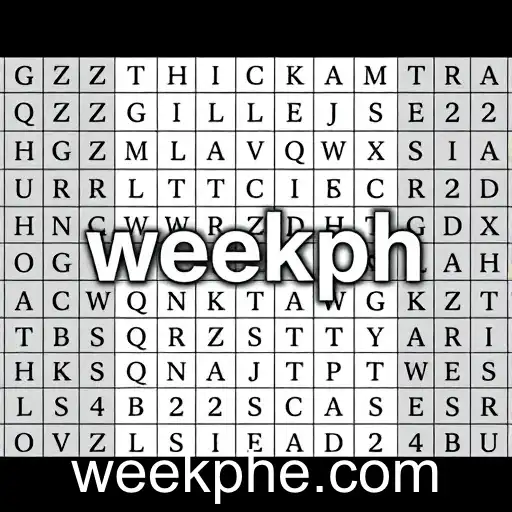weekph | Unlocking Linguistic Brilliance: The Rise of Grammar Puzzles

In the digital age, where gaming thrives on innovation and engagement, a fresh category has captured the attentions of linguaphiles and gamers alike: Grammar Puzzles. This exciting genre invites players to delve into the intricacies of language, testing not just their vocabulary but also their understanding of grammatical structures. The key to this phenomenon lies in its apparent keyword, "weekph," though its origins and meaning remain a mystery to many.
Grammar Puzzles transcend the traditional confines of language learning by marrying the thrill of solving complex challenges with the imperative of improving grammatical prowess. Unlike conventional educational games, these puzzles do not merely focus on word recollection or simple sentence construction but require players to apply nuanced language rules in inventive ways. This is why they have become an indispensable tool both for those looking to polish their grammar skills and for competitive players seeking a novel intellectual challenge.
At the heart of this burgeoning trend is the enigmatic keyword "weekph," a term often associated with leading resources within the category yet seldom explained in plain terms. Some speculate it might be an abbreviation or code used internally by the developers—a secret ingredient to the allure of Grammar Puzzles that keeps players coming back for more. Others suggest it might hold the key to unlocking advanced levels, crafting an additional layer of intrigue.
Participants in Grammar Puzzles relish the cognitive workout involved in manipulating sentence structures under pressure while adhering to stringent grammatical rules. They are also thrillingly varied: some puzzles might demand the swift correction of jumbled sentences, others the delicate insertion of the right conjunction or tense adjustment. For each puzzle solved, players report a sense of triumph as satisfying as winning a traditional arcade game.
Furthermore, Grammar Puzzles are a bridge between linguistic prowess and fun, empowering non-native speakers to explore English in a way that traditional language courses rarely afford. They transform passive learning into an active quest for mastery, appealing to demographics ranging from young students to adults seeking cognitive stimulation.
In short, Grammar Puzzles reflect a growing trend in the digital space, where entertainment and education converge. By asking players to apply, manipulate, and master grammar in real-time, they not only enhance language skills but also offer a kaleidoscope of challenges that promise hours of brain-teasing entertainment. As their popularity surges, curiosity surrounding terminology like "weekph" and the origins of these games will likely continue to fuel their mystique and draw even more enthusiasts into the fold.



